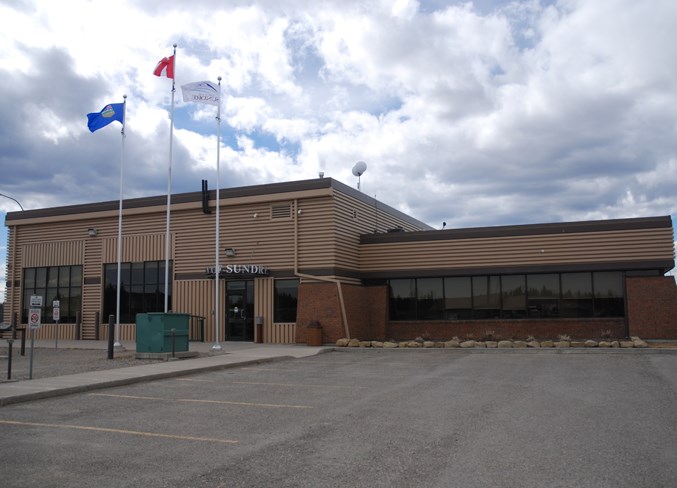The Town of Sundre wants clearer definitions in the Municipal Government Act outlining how municipalities will be able to assess cannabis production facilities for property tax purposes.
Under the act, the only place that cannabis growing operations — not to be confused with dispensaries or retail stores — fit right now is under farms or crops, said Linda Nelson, Sundre’s chief administrative officer, adding the government of Alberta needs to adequately define these new operations.
Additionally, background information included in a resolution to the Alberta Urban Municipalities Association (AUMA) that was approved by council during the July 30 meeting points out that the MGA currently states that no assessment is to be prepared for growing crops as well as farm buildings, and that the taxation of farm buildings is being phased out in urban municipalities over five years, culminating in a 100 per cent exemption in 2022.
“As significant property value is tied to the industrial-scale structures used in cannabis grow operations, this represents a large loss of taxation base,” the resolution reads.
Such uses should be categorized as non-residential as opposed to a crop or farm, said Nelson.
Although the Candre Cannabis development in Sundre is situated on light industrial zoned land within an urban municipality, the growing portion of the facility would still fall under tax laws regulating farms and crops, she said.
Sundre’s council has joined a growing chorus of municipalities seeking a clearer and fairer tax definition to accommodate cannabis production facilities and offset those operations’ servicing costs.
The resolution ties in with a related letter to Minister of Municipal Affairs Shay Anderson to request support in amending the legislation to address the issue, said Nelson.
“Currently, all taxation from cannabis production will be paid to the federal and provincial government, with no portion being paid to the affected municipalities,” reads the letter signed by Mayor Terry Leslie.
“Cannabis grow operations are high-intensity land uses that heavily utilize municipal services including roads, water, sanitary sewer, etc. Despite this, the current assessment and taxation structure prevents the municipality from recovering funds through property taxes, which means the non-residential tax payers will be forced to subsidize these facilities,” he wrote.
The resolution also requests that AUMA lobby the provincial government to “amend appropriate legislation and regulations to clearly enable municipalities to assess and tax cannabis grow operations at fair market value.”
Furthermore, from an ethical perspective, Nelson told council she felt the matter should also be discussed with Candre, and so decided to discuss the issue with Jesse Beaudry, the company’s president and CEO.
“His response to me was actually quite amazing,” she said.
“What he did say to me is that he made a commitment to this community to become a part of the community, and in doing so, he believes that he should be paying his fair share. So he supports this fully.”
Reading email correspondence sent by Beaudry, Nelson told council, “One thing has not changed from the day we first met until today and going forward. My company is committed to positively contributing to Sundre and we will work hard at earning our place in that excellent community. We look forward to a bright future together.”
Council proceeded to unanimously agree to support the resolution to AUMA as well as the letter to the minister.
A copy of the letter and resolution was to be sent to neighbouring municipalities, said Nelson, adding their support will also be sought.



